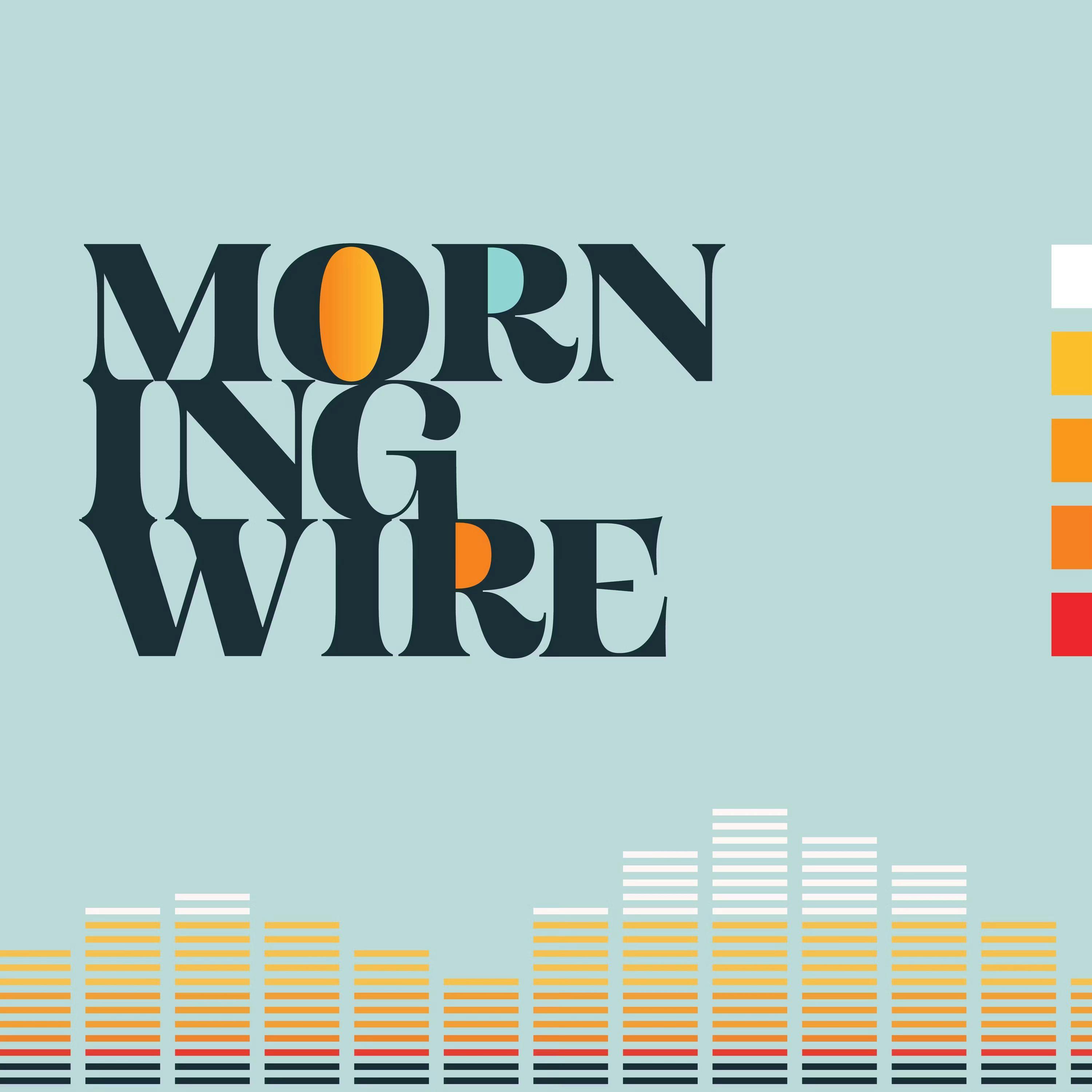Trade Wars & Tax Cuts: Is Your Savings Safe? | Saturday Extra
Press play and read along
Transcript
Speaker 1 Fears of Trump's trade wars and tariffs have sparked stock market volatility and raised concerns over the future of the U.S.
Speaker 2 economy.
Speaker 3 We speak to a Wall Street veteran about why he says Americans should not be worried about the economy.
Speaker 3 He believes Trump's pro-growth policies, like tax cuts and deregulation, could ultimately benefit the economy and the American taxpayer. I'm Georgia Howe with Daily Wire editor-in-chief John Bickley.
Speaker 3 It's Saturday, March 22nd, and this is a weekend edition of Morningwire.
Speaker 3 Joining us to discuss what we can expect for the economy is CEO of Strategic Wealth Partners, Mark Tepper. Mark, thanks so much for coming on.
Speaker 2
Thank you, Georgia. I appreciate it.
Looking forward to this.
Speaker 3 So let's just start with some recent stock market volatility.
Speaker 3 Just in the past month, there's been not a catastrophic dip, but a significant dip that's caused a lot of fear around Trump's so-called trade wars. How spooked should we be about the stock market?
Speaker 2 Well, look, I think if you rewind back to Trump tariffs 1.0, fourth quarter of 2018, top to bottom, the stocks fell about 19.9%.
Speaker 2 And right before they hit 20%, they started to reverse course. And then you fast forward to 2019, the SP was up around 30%.
Speaker 2 So what I would say is that when you look at what's going on with tariffs, obviously it's creating a lot of uncertainty, which is causing a lot of fantastic stocks to pull back or sell off that's presenting good buying opportunities because when you look at policy uncertainty which is at its second highest level on record second to only the lockdowns of 2020
Speaker 2 Whenever you have a policy uncertainty, this high forward-looking returns in the stock market over the next three, six, and 12 months are substantially above average.
Speaker 2 So, look, I'm viewing this as a buying opportunity. I'm trying to pick off my favorite high-conviction names and add to them where appropriate.
Speaker 3 Now, the legacy media, though, has been kind of pounding this message that this is because the tariffs are bad and that it's only going to get worse.
Speaker 3 That's obviously the opposite of what we're hearing from Trump and his Treasury Secretary.
Speaker 3 What are your thoughts on Trump's use of tariffs and how do you expect them to impact, one, the stock market and two, consumers?
Speaker 2 So, if we look at kind of worst-case scenario for tariffs, as a country, we have about $25 trillion of total personal income annually. We import about $3.3 trillion of goods.
Speaker 2 If there was a universal 25% tariff on every single good we import, That would equate to roughly a 3% income tax on the American taxpayer. Not fun, not great, but not the end of the world.
Speaker 2 But that's only if you're looking at tariffs in a vacuum. If then you start to pair it with the other pro-growth initiatives, lower taxes, less regulation, it actually seems pretty decent.
Speaker 2
So, I mean, you look at the extension of the Trump tax cuts, just using the highest tax bracket. That went from 39.6 down to 37.
I don't have a PhD in mathematics, but that's pretty close to 3%.
Speaker 2 And I also look at the fact that, you know, one of the latest things President Trump has talked about is potentially no tax up to $150,000 of income. He's talked about no tax on Social Security.
Speaker 2 He's talked about no tax on tips, no tax on overtime. The effective tax rate for someone making $150,000 a year is 15% right now, their federal income tax rate.
Speaker 2 If what President Trump wants to do happens, that goes down to zero, but then there's that extra 3% from tariffs.
Speaker 2 So look, at the end of the day, I think this is actually going to be good for the economy, good for the American taxpayers, good for consumers, and ultimately beneficial for the stock market.
Speaker 3 Now, how likely is it that Trump could pass something like no federal income tax under $150,000? Is that a pipe dream or is that something he could actually get votes for?
Speaker 2 That sounds like quite the challenge. But I think if he can make the case and he can get a lot of the Democrats to buy into helping average Joe and Jane on Main Street,
Speaker 2 I think there could be a chance. I mean, you rewind back to pre-Civil War and tariffs generated roughly 90% of the government's revenues back at that point in time.
Speaker 2 We didn't have a permanent income tax until, I think it was 1913. So there's certainly a case to be made.
Speaker 2 I don't think it's the most likely outcome, but I think it would be great for the economy because at that point, what we're doing is via tariffs, we are taxing on consumption rather than income.
Speaker 2 And when you do that, you incentivize saving. And when you save, that grows the economy much, much faster.
Speaker 2 And as we all know, look, we have a crushing fiscal deficit that obviously Doge is trying to chip away at, but no amount of spending cuts from Doge are going to completely balance the budget.
Speaker 2 So the only way we can balance the budget in the long run and start to chisel away at the debt is a combination of what Doge is doing and cutting spending. But we need to grow.
Speaker 2
And if we can incentivize saving over consuming, we can do that. We can achieve that.
And it's going to take 10, 20 years for us to make good progress, but we can do it.
Speaker 3 Now, will there be a painful short term for citizens and consumers while the markets are getting used to what this new terrain looks like and while we're still paying down this massive debt?
Speaker 3 In other words, are we in for a rocky road?
Speaker 2 I mean, as long as the uncertainty exists, that's what is causing the most heartache right now. But what I can tell you, Georgia, is that We're not talking about demand destruction.
Speaker 2 We're just talking about a timing event whereby demand gets pushed out of quarter or two.
Speaker 2 So, any of those growth initiatives that small businesses were thinking about putting in place this quarter, those move to quarter two, quarter three, quarter four of this year.
Speaker 2 They still happen, but they just happen later.
Speaker 2 I would think that by Q3 of this year, you will start to see a big turnaround.
Speaker 2 I do think, Georgia, that getting the Trump tax cuts extended by somewhere around July 1st through 15th is incredibly important for consumers.
Speaker 2 If it doesn't happen by then, you've got back the school shopping season really about a few weeks after that, and you might see consumers pull back.
Speaker 2 So consumers need to feel like those Trump tax cuts are going to stay in place, that it's helping them, that tariffs have not raised the price of all the goods that they want to buy to astronomical levels.
Speaker 2 And when they see that, and I do believe it will be made clear, by Q3 or so of this year, yes, I do think the economy can be on solid ground.
Speaker 3
All right. Well, Mark, I hope you're right about this.
Thanks so much for coming on.
Speaker 2 Thanks, George. I appreciate it.
Speaker 3 That was Mark Tepper, CEO of Strategic Wealth Partners, and this has been a weekend edition of Morningwire.

